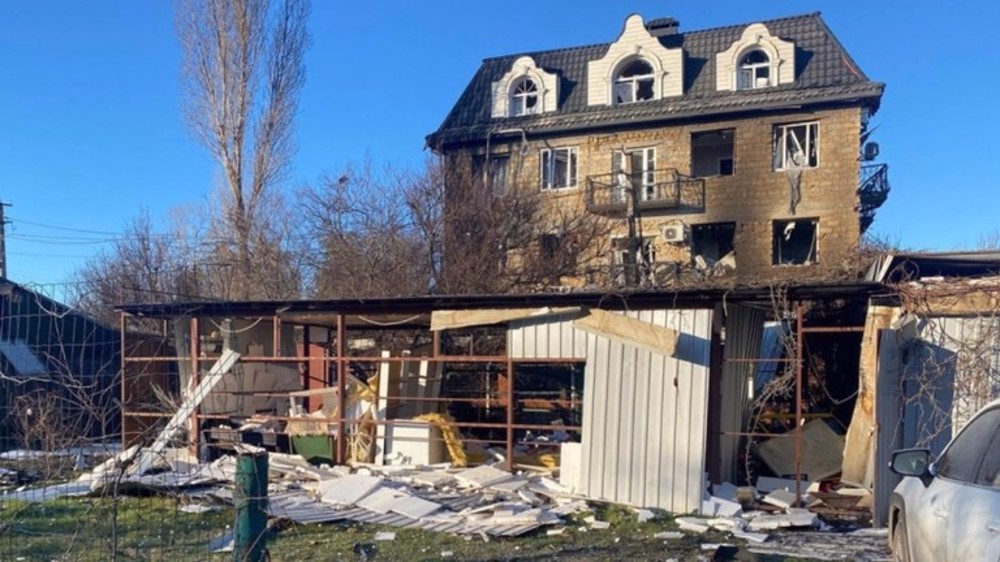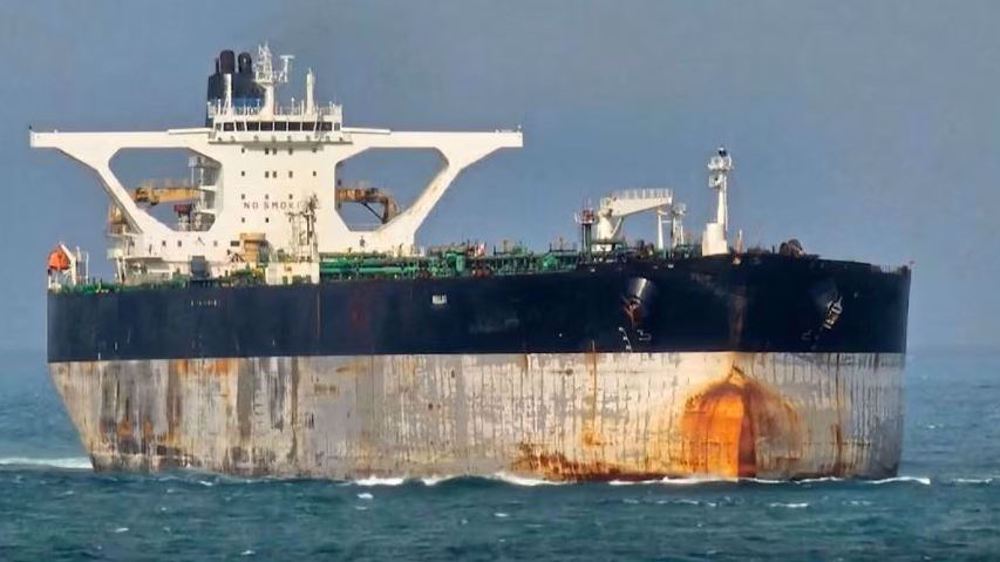Russia: Leaked files show UK engaged in 'secret info war' against Moscow
Leaked documents show the UK finances opposition media outlets, including the BBC, to "create conditions for regime change in Russia," the Kremlin says.
Earlier this month, hacker group Anonymous published documents that purportedly show Thomson Reuters and BBC Media Action foundations are involved in “a secret information war” against Russia.
Russian Foreign Ministry Spokeswoman Maria Zakharova said on Friday that London "finances and manually controls the operation of various media via intermediaries, and how it formed a network of influence agents in the Russian-language segment of social media."
Zakharova said Moscow was awaiting an explanation from London about the papers.
“According to the leaked documents, PR [foreign relations] agencies search for a new audience, promote content, make adjustments to the editorial policy and teach the staff the latest technologies for manipulating mass consciousness," she added.
Zakharova said the leaked papers are "confirmation" that former UK Prime Minister Theresa May’s plan to give Russia the status of "a hostile state" is working.
Back in November 2017, the then prime minister announced plans to allocate $139.65 million for that purpose.
The leaked files also exposed how Russian-language media outlets Meduza and MediaZona received illicit support from the UK government.
Earlier this week, Grayzone said on Twitter that Amnesty International had rescinded imprisoned Russian opposition figure AlexeI Navalny’s “prisoner of conscience” characterization on the basis he previously “advocated violence and discrimination and has not retracted such statements.”
Shortly after, Mediazona published an extraordinary exclusive translated by Latvia-based website Meduza that claimed the decision by Amnesty resulted from a Kremlin-orchestrated “campaign.”
Amnesty International, however, unambiguously dismisssed any suggestions its decision was in “response to external pressure,” describing them as “untrue”.
“Amnesty decided to re-examine the case and conducted a thorough review of the evidence base,” said the organization.
“After painstaking consideration, we concluded that we had made a mistake in our initial determination,” it added.
Earlier this month, a court in Moscow sentenced Navalny to three and a half years in prison for breaking the terms of a suspended sentence he had received seven years ago for an embezzlement case.
Russian police detained him upon arrival at Moscow’s Sheremetyevo Airport from Germany last month, five months after he was transferred to a hospital in Berlin to be treated for what the West alleged had been a nerve agent attack by Russia.
Moscow has repeatedly rejected the allegations, saying the West is exploiting the case for political reasons and using it as a pretext to impose more sanctions against Russia.
Russian President Vladimir Putin said previously that Western powers are exploiting the Navalny case to “contain” Moscow.
Putin said that Russia’s “opponents or our potential opponents... have always relied on — and used — ambitious, power-hungry people” like Navalny to undermine and contain the country.
He also said Russia’s “numerous successes” on a military level as well as its management of the coronavirus pandemic and the development of the Sputnik V vaccine were “starting to irritate” Moscow's adversaries.
Venezuelan military stands with acting president after US kidnapping of Maduro
VIDEO | Press TV's news headlines
VIDEO | Protesters in Toronto slam US kidnapping of Venezuelan president
Israeli troops detain, intimidate Palestinian toddler in West Bank
Iran says its investments in Venezuela face no major risk
Make ‘right decision’ or face more US pressure, Rubio tells Venezuela’s Rodriguez
VIDEO | General Soleimani honored in Kashmir, Kargil
US, Israel waging ‘soft warfare’ to destabilize Iran after June defeat: Top general













 This makes it easy to access the Press TV website
This makes it easy to access the Press TV website